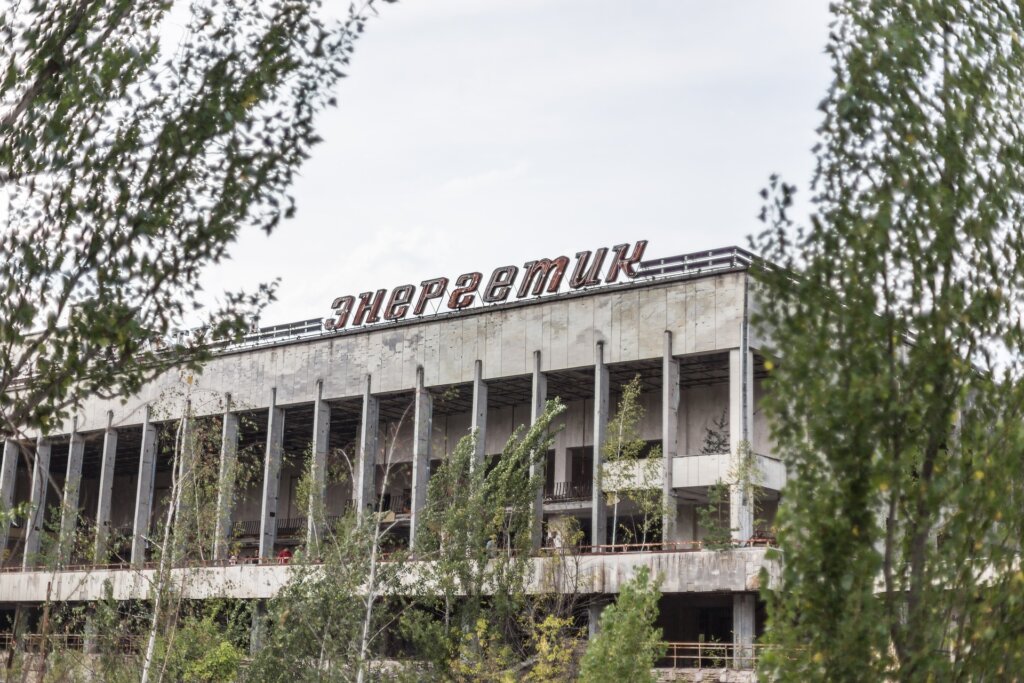Notes and Questions on the Ukraine Crisis: An Utterly Frustrated Critical Opinion – İnan Rüma

One fact seems clear though it does not speak for
itself: Russian Federation is directly attacking Ukraine. The rest appears as
political or social scientific discussion, mainly as a debate centred on Russia
and/or the USA. I am among those who feel amazed and even angry that the issue
is not the fate of the world but the aggression of a major country that has been
unprevented/mismanaged/neglected/rivalled/caused/fuelled/provoked by another
major country, one among many other such aggressions by major countries in the
21st century. The words of Martin Kimani, Kenya’s ambassador to the UN, are noteworthy in this respect. One feels like
screaming a clear and bold “NO!” to all.
In the actual world where billions suffer under the
deadly consequences of global economic and ecological crises, such a crisis like Ukraine that has been
seriously mismanaged if not merely escalated and such aggression like Russia’s are
irrational and irresponsible. The ages-old discussions on rationalism, academic
or not, is plausible, but who could seriously argue now that war is rational in
this exhausting ecological crisis we suffer? Rationalism is to sustain survival,
not extinction.
The approaches of many International Relations (IR)
scholars/students seem rather part of the problem than a solution: If medical
doctors, biologists, etc. approached the Covid-19 pandemic and other public
health problems in the way some IR scholars/students have done to the Ukraine
Crisis, please think how we humble humans would be doing in these days?
Violence/War is a public health problem like an epidemic/pandemic: Observation,
Acceptance, Treatment, and Prevention are essential!
Observation has taken a long enough time. “Russia,”
no matter what the mindset of its leadership, foreign policy elite or nation, cannot
accept Ukraine as a separate and indeed independent nation and state, even if it
seems it can for the other post-Soviet states. According to them, Ukraine is
not just “post-Soviet”; it is part of Russia, perhaps not even unlike other
Republics/Regions in the Russian Federation. We are told that its independence
can be acceptable only if it is under Russian control, and even that is an
intermediate solution.
Moreover, the Russian elite, perhaps the society,
has been socialized with that notorious perception of threat from “the West.”
History seems to justify this perception ranging from medieval Swedish Empire
to Napoleon’s controversial French Empire, to Nazis, to Cold War. That Soviet
Union was not “Russia” at all only accentuated this perception or, in fact, the
threat because it has been a communist attempt in a capitalist world.
Capitalists and communists are clear about each other: a destructive disgust.
“Russia,” no matter what the mindset of its leadership, foreign policy elite or nation, cannot accept Ukraine as a separate and indeed independent nation and state, even if it seems it can for the other post-Soviet states.
Putin
and fellows have regularly mentioned “the West.” There is no unified “the West”
(Please consider Stuart Hall).
Orientalism hardly survives, imperialism has been reformed (Please consider
David Harvey),
yet curiously enough, the discourse on “the West” is reproduced instead by
those who have been considered “non-Western,” indeed as a -desperately
ostensible- reaction. This flawed totalitarization
(uniformization) of “the West” seems to misinform much foreign policy
formulation and implementation.
For instance, one may have difficulties
understanding why Russia has insistently pushed Europe to the USA. The American
role and presence in Europe have been challenged for years and not only by
France, which has often been the black sheep on this topic. In a matter of (recent)
days, a hesitant Europe has been compelled to bandwagon with the USA, undoubtedly
due to Russian aggressive actions. Would not such a security-obsessed mindset
with a historical experience like the Russian elite require to benefit from the
rifts between its rival/enemy and its potential and controversial
collaborators? Doesn’t that historically famous/notorious Realpolitik signify
this? Were Soviet communists unhappy to cooperate with the leading capitalist
USA in the Second World War?
An observer of Putin’s latest speeches may well
think that he seems to need psychiatric help. He seems disconnected from
reality, absolutely convinced by his re-writing of history, and condemned by
assumptions/obsessions. His words about and to Ukraine appear as a pathetic
denial of concrete existence, unwanted and deliberately disassociated with.
Under current conditions, Ukraine does not want to be part of the Russian
Federation. Ukraine does not want to be controlled by the Russian elite. Does the
Russian elite not see that they are unwanted and why?
That cliché of Russian-Chinese cooperation against the
USA begs a similar questioning. It is fair to think that the effects of
sanctions on Russia will crucially depend on possible Chinese economic support. Isn’t this a form of dependence? China is Russia’s biggest supplier of imports, including
those with high technology such as electronics, computers, and mobile phones. It
is also the biggest export market of Russian oil, and a growing market for its natural gas. Does not Russia look like a peripheral country
supplying raw materials to a developed industrial economy and importing
finished industrial goods? Does not this quite transparent political economic
dependence on China disturb the Russian elite who are so obsessed with
sovereignty?
The political-economic domination of China in what
Russia considers “near abroad,” such as Central Asia, seems unrivalled. Can Russia
remain immune to Chinese political economic expansionism? Let’s even ask: Can
China benefit from this Ukraine-Russia Crisis as a proxy war in its conflict
with the USA? While the Russian elite thinks they profit from the American-Chinese
competition to assert their sovereignty, don’t they seem peripheralized in this
conflict? One may even argue: that there is no Russian-Chinese cooperation but
a peripheralization of Russia by China while The Russian elite thinks they emphasize
their beloved sovereignty. Therefore, while Russia is argued to follow a
rational plan against Ukraine and elsewhere, has it been rational recently, or
is it merely failing in delusion?
One may equally question American attitude within
this respect. It does not seem genuinely understandable why the USA insistently
pushed Russia towards China by declaring both enemies. Same famous/notorious
Realpolitik question again: Why unite
two rivals against oneself while there could and would be rifts between them?
Remembering that the Trump administration has been hostile even to Europe previously
named the “Transatlantic Cooperation,” the rationalism discussion can be
revisited even in this limited sense.
American
elite escalated the crisis while the Russian elite has been obsessed with a
threat perception under a narrow-minded and obsolete understanding of security.
The USA has also behaved in the same context and accentuated these perceptions
with -again- narrow-minded understanding of deterrence. Russian elite was instead
provoked than deterred. Simply put, the American elite could not manage the
crisis. They escalated it to a level of conflict. Was it a (mis)calculation?
Winners and losers? There seems no winner. Losers seem to the ordinary humans earning and enjoying their life with their honest labour most dramatically in Ukraine, but Russians are not spared either.
It
has been just a new stage in the context of continued mismanagements of relations
with post-Soviet Russia. It must also stem from the early deficient observation
and misoriented behaviour of treating the Russian Federation as a defeated
power like Germany after both wars. Hence, a disoriented Versailles moment for Russia.
There was an opinion published in Le
Monde in autumn 1993, warning about the possibility of Weimar Germany-looking
Russian Federation could produce Nazi-like leader/elite aggression. Nobody heard
Vladimir Putin at the time, and the Russian nationalist leader Zhirinovsky
looked like a potential Nazi.
The flawed nature and imposition of the so-called liberal reforms in Russia throughout the 1990s were even criticized by many liberal economists like Joseph Stiglitz. Then Putin came, and the rest is known. But a question remains: Has Putin always been so, or has he gradually become so within the global economic and political crisis framework, to which the American elite has substantially contributed. Illegal and illegitimate military occupations in recent years started with the American occupation of Iraq; can we thus say Putin’s Russia has become like or nothing more than G.W. Bush’s America? One salient and vital difference: Bush left power with elections; the administration has changed. Nobody expects that from Putin and his cronies.
All in all, this infamous multipolarity in world politics could not be managed in the case of the latest Ukraine-Russia crisis. The USA looks like missing its “unipolar moment,” though, in a self-declared “trade war” with China, Russia aims to restore bipolarity. Yet, it is not comparable to the Soviet Union, especially in political-economic sense. As a result, Ukraine could not become an independent and neutral Austria of the Cold War. It could be questionable whether better management of multipolarity would be better for world peace. It can be said that USA, Russia and China are in a typical imperialist rivalry. What is more, it is an utterly destructive one due to the total extinction risk under the devastating ecological crisis. Above all, the main aim is world peace for all beings, and self-centric conflictual behaviour is the main problem. But a Ukraine, like an independent and neutral Austria, seems much better than what it is now.
Winners and losers? There seems no winner. Losers
seem to the ordinary humans earning and enjoying their life with their honest labour
most dramatically in Ukraine, but Russians are not spared either. One could be concerned
about the fate of peaceful and democratic Maidan protesters in 2014, and at the
same time because of the increasing nationalist oppression in Ukraine in recent
years as a result of Russian aggression. The so-called post-communist transition
has been marked with the tragic disappointments of the masses aspiring more
freedom without necessarily losing social security. Neo-liberal economic exploitation,
though with some levels of political freedom, has continued with increasing
authoritarianism and eventually destructive old war. Meanwhile, the world is on
the extinction route in an ecological breakdown…
_______________________________________________________________________________________________

Dr. İnan Rüma, İstanbul Bilgi Üniversitesi Uluslararası İlişkiler Bölümü’nde çalışmaktadır.Akademik derecelerini ODTÜ ve Paris-1 Panthéon-Sorbonne Üniversitesi’nde edinmiştir.Bosna-Hersek ve Kosova’daki AGİT misyonlarında çeşitli sürelerle çalışmıştır.Siyasal İktisat, Balkanlar, Rusya, Avrasya ve kaçınılmaz hâle gelen Türk Dış Politikası üzerine çalışmaktadır.Doğayla uyumlu yaşam, emek ve özgürlüğün asal olduğunu düşünmektedir.
To cite this work : Inan Ruma, “Notes on the “Notes and Questions on the Ukraine Crisis: An Utterly Frustrated Critical Opinion”, Panorama, Online, 25 February 2022, https://www.uikpanorama.com/blog/2022/02/25/notes-questions-ukraine-crisis/
Copyright@UIKPanorama. All on-line and print rights reserved. Opinions expressed in works published by the Panorama belongs to the authors alone unless otherwise stated, and do not imply endorsement by the IRCT, Global Academy, or the Editors/Editorial Board of Panorama.